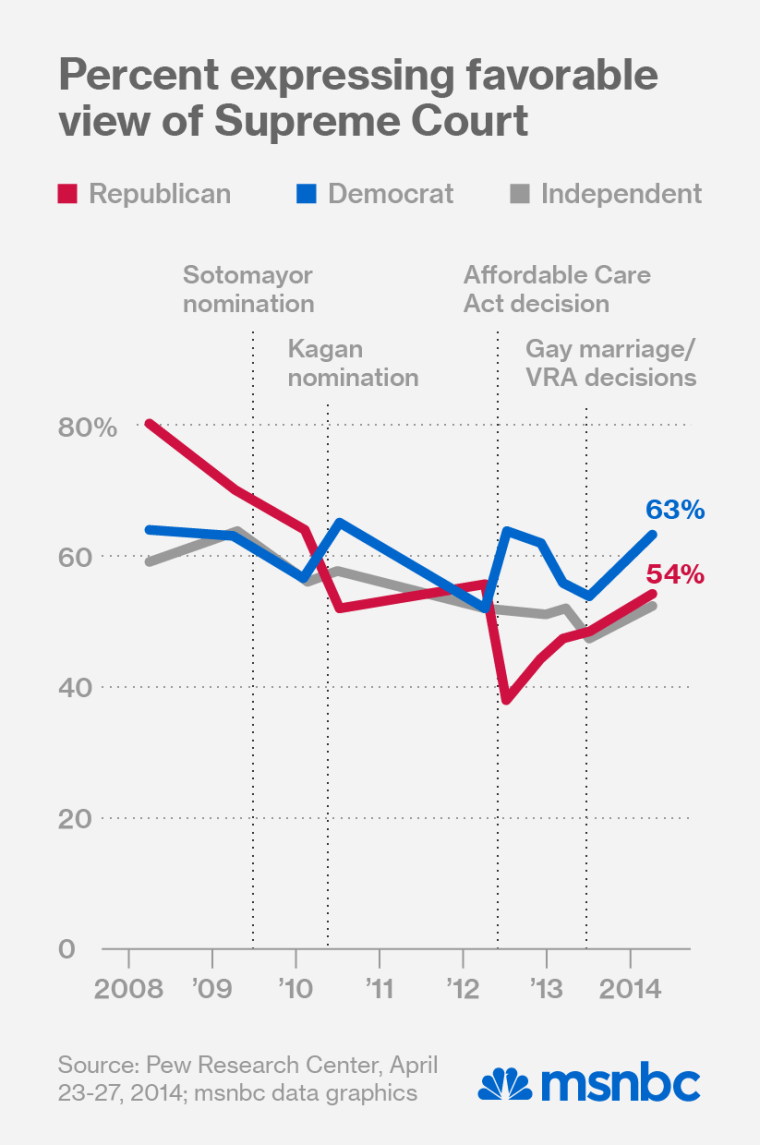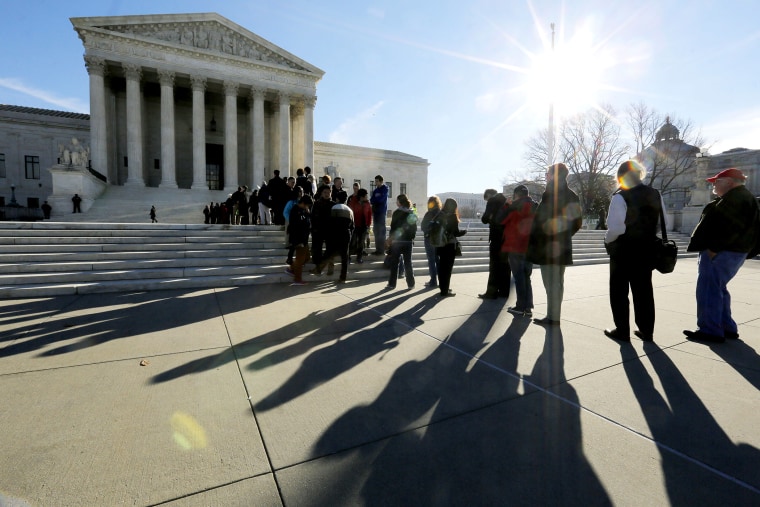Under Chief Justice John Roberts, the Supreme Court has moved to the right, easing restraints on big money in politics, eviscerating a key part of the Voting Rights Act, and issuing a series of decisions shielding corporations from lawsuits by consumers and employees. But Democrats love it anyway -- even more than Republicans. And Republicans consider it a liberal court.

The latest study from the Pew Center on the People and the Press finds that 63% of Democrats have a favorable view of the Supreme Court, compared to 54% of Republicans. Almost as many Democrats see the court as "middle of the road" (36%) as conservative (40%). Only 10% of Republicans see the high court as conservative, 38% see it as "middle of the road," and 45% see it as liberal.
The poll results show just how unsuccessful Democrats have been in persuading their base that the Supreme Court has moved too far to the right. Despite decisions striking down school integration programs, rolling back the Voting Rights Act, and hindering the expansion of Medicaid in the Affordable Care Act, black Americans are even more likely to see the Roberts Court positively. Sixty-three percent of black Americans have a favorable view of the Roberts Court, up from 44% in the aftermath of its Voting Rights Act decision in July 2013.
Yet there's little doubt about the conservatism of the Roberts Court. Several sitting Justices are among the most conservative of all time, and the Roberts Court is far more likely than its predecessors to issue conservative rulings.
So what explains the discrepancy? It may simply be the case that in a number of recent high-profile cases, the court has come to conclusions liberals agree with, and those well-known results hide the overall trend. The Roberts court eviscerated the Medicaid expansion in the Affordable Care Act, but it did not strike down the individual mandate. It gutted a key portion of the Voting Rights Act, but that decision was issued around the same time as another historic decision striking down the federal ban on recognition of same-sex marriages.
"The public's perception of the court is often a reflection of a few very high-profile cases. Among conservatives, the Supreme Court seems liberal because the court upheld Obamacare and struck down the Defense of Marriage Act. Among liberals, the Supreme Court seems conservative because of Citizens United and Shelby County," says Adam Winkler, a professor at UCLA School of Law. "If one looks beyond the high-profile cases to examine the wide variety of doctrines the Roberts Court has shaped, the conservative tilt is undeniable."
